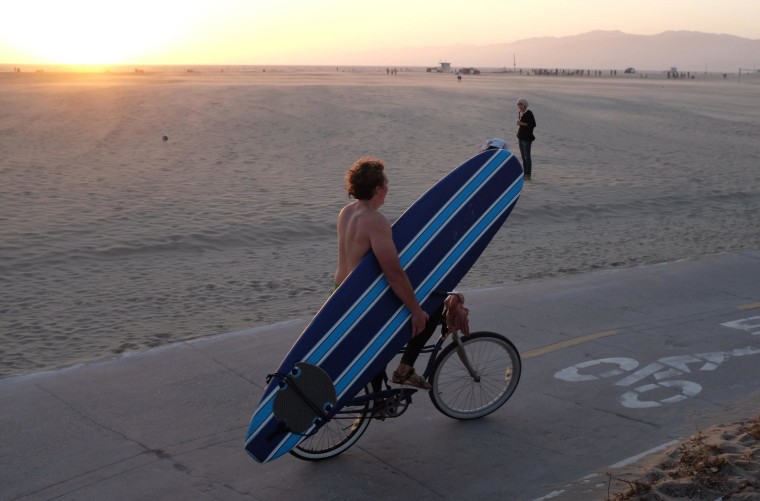So much for young adults embracing work-life balance.
Millennials were supposed to be the generation that turned the tide of workaholism by demanding flexible schedules, family-friendly hours and paid time off so they could unplug from the workplace.
In reality, once they got established and started moving up the corporate ladder, it seems like millennials turned out to be less tolerant not only of their own vacation wishes, but of their colleagues', as well.
A new survey commissioned by Alamo Rent A Car found that “vacation shaming” is discouragingly common in today’s workforce. The primary offenders aren’t the hidebound Baby Boomers, but their kids, which means for workers of all ages who resent the implication that they have to check email from the beach or table their vacation days entirely, the anti-holiday sentiment is likely to get worse before it gets better.
Nearly half of the survey respondents said they felt guilt or shame about taking a vacation at least sometimes, Alamo’s survey found, with more than one in five saying they experienced this “all the time.”
Read More: Millennials Are 'Hungrier and More Well-Educated' Than Past Groups
These results varied by age, though, with roughly 60 percent of millennials reporting feeling “vacation shamed” versus about 40 percent of respondents over the age of 35. These young adults are also more likely to perceive “shaming” comments from colleagues or bosses as being serious rather than said in jest.
“We’ve created this kind of work martyr culture,” said Cait DeBaun, spokeswoman for the U.S. Travel Association’s "Project: Time Off." The number of vacation days American workers take annually has fallen steadily since about the dot-com era, she said, and the falloff has accelerated since 2009.
About four in 10 Americans don’t take all of their vacation every year, DeBaun said, and those who forgo getaways in the name of getting ahead grow resentful of what they perceive as a more cavalier attitude on the part of their colleagues.
As a result, millennials don't just perceive more shaming — they're also the ones more likely to be doing the shaming themselves. Alamo’s survey found that 42 percent of workers under 35 said they shamed co-workers for taking vacations at least occasionally, compared to only 24 percent of workers over 35.
What happened? Millennials were supposed to represent a breath of fresh air for the work-life balance movement, with young entrepreneurs like Mark Zuckerberg making highly visible calls for benefits like enhanced parental leave.
Read More: A Big Chill: Millennials Learning Harsh Reality of Workplace
“Millennials are going to have to work a lot harder than they thought,” said Jason Dorsey, co-founder of the Center for Generational Kinetics. “They’ve grown up and they’ve lost control.”
Waking up to this cold reality has engendered cynicism. DeBaun described the mentality among vacation-shaming millennials as, “If I see someone else enjoying their time off, I’m going to feel badly about it and make them feel badly about it.”
With many young adults now out of entry-level jobs and taking on personal responsibilities like homebuying and having kids, the stakes are higher, Dorsey said.
“This generation ... is realizing in many cases, the world of work is not going to change for them,” he said. “You realize you have more to lose if you don’t play by those rules.”
